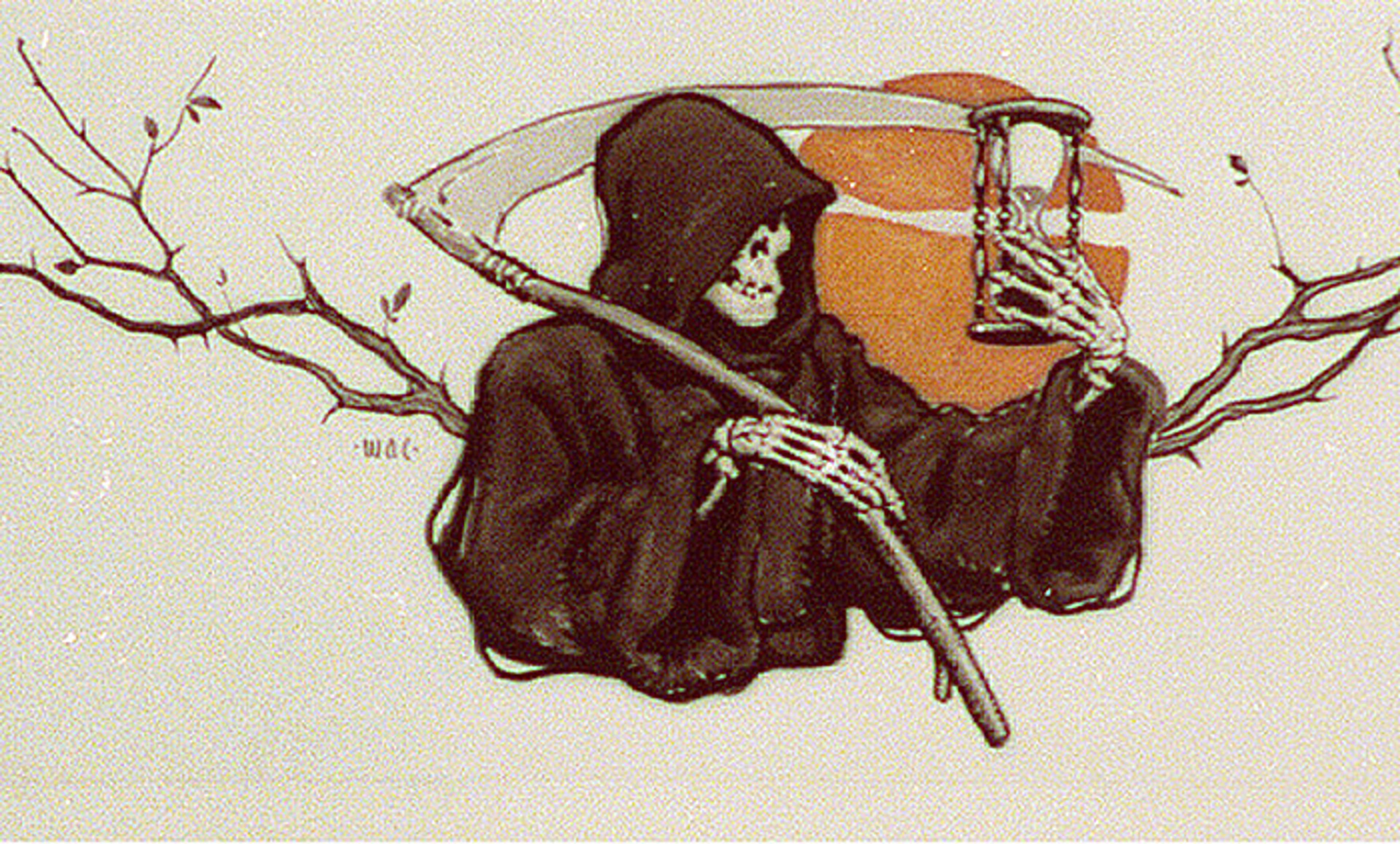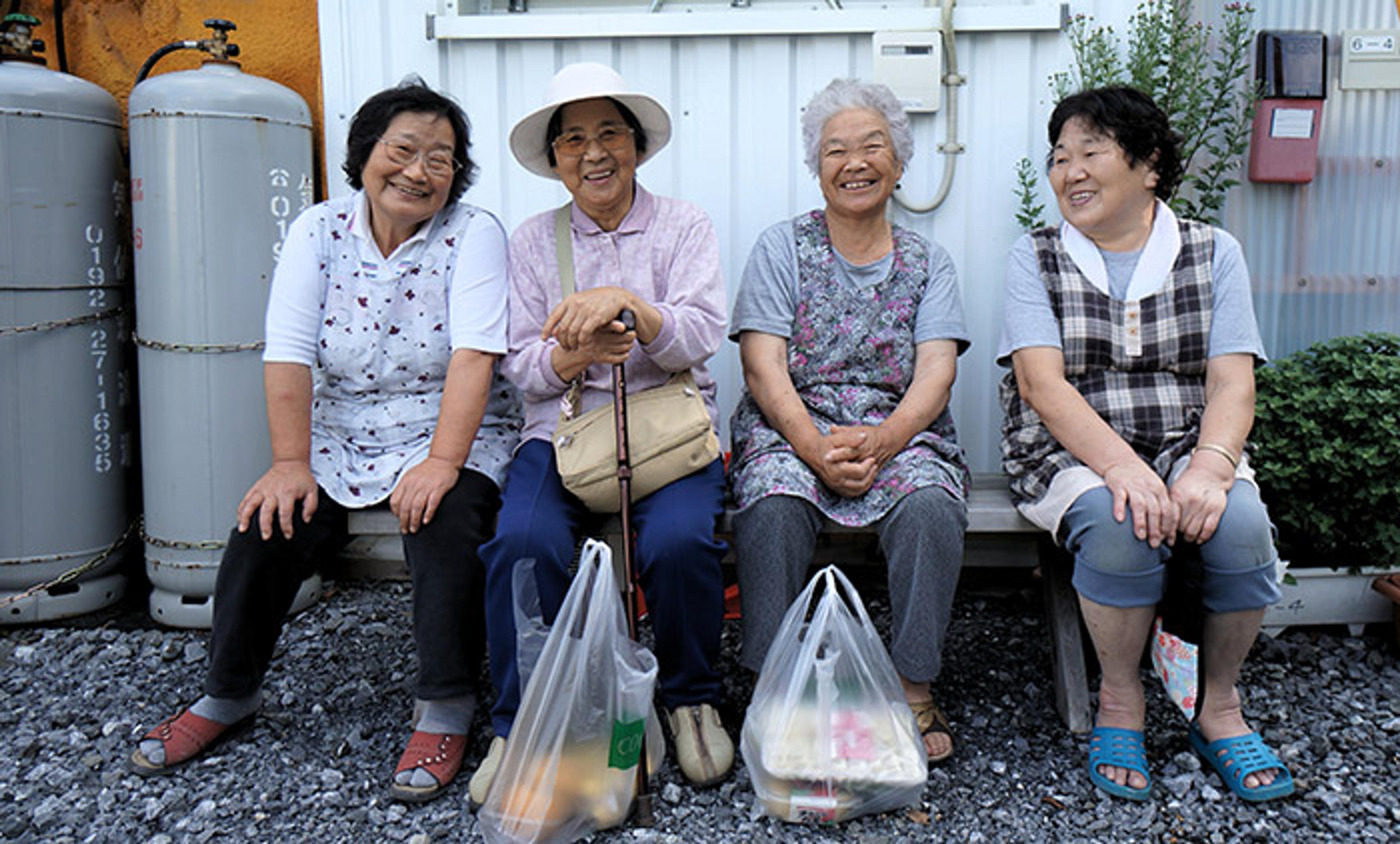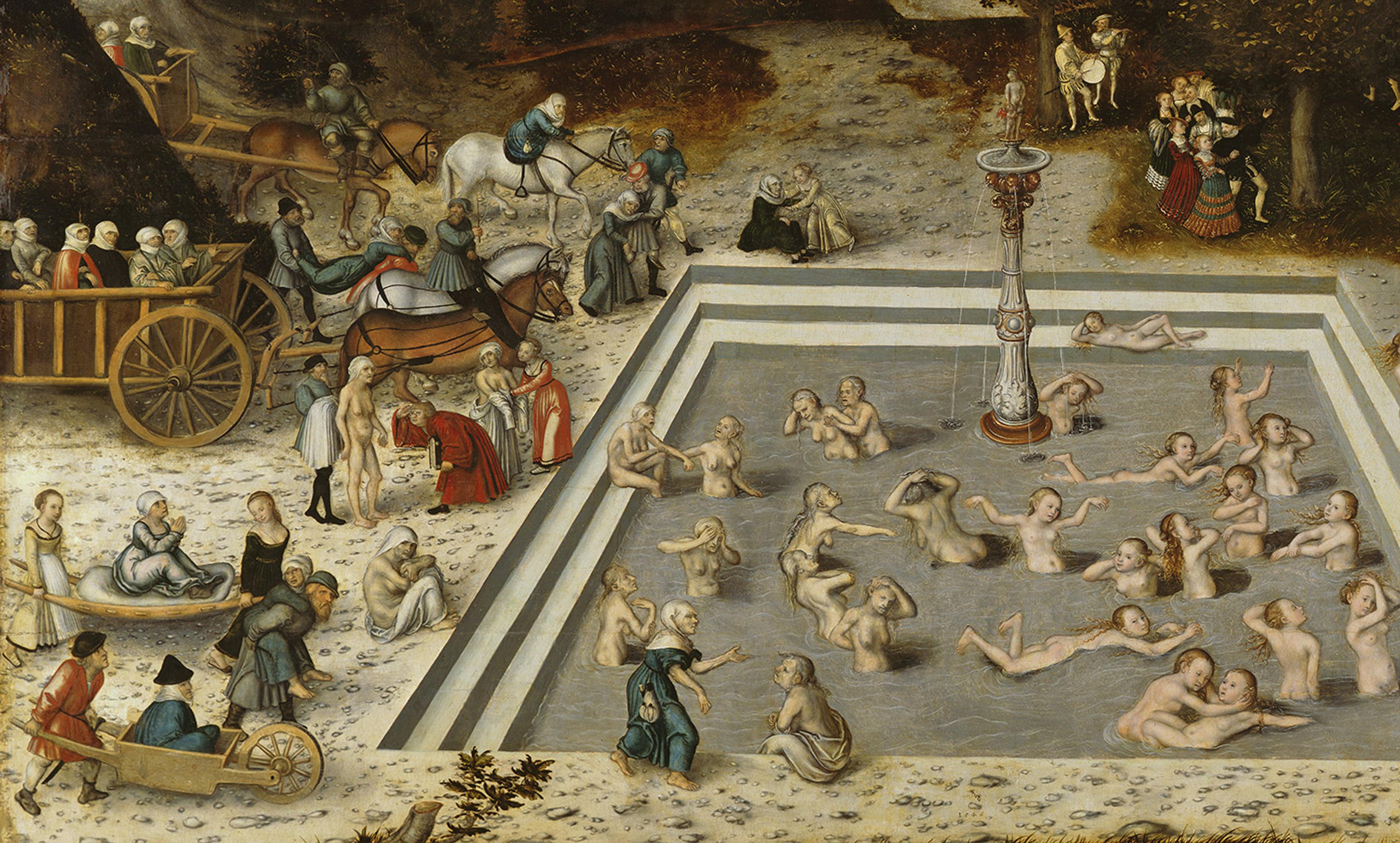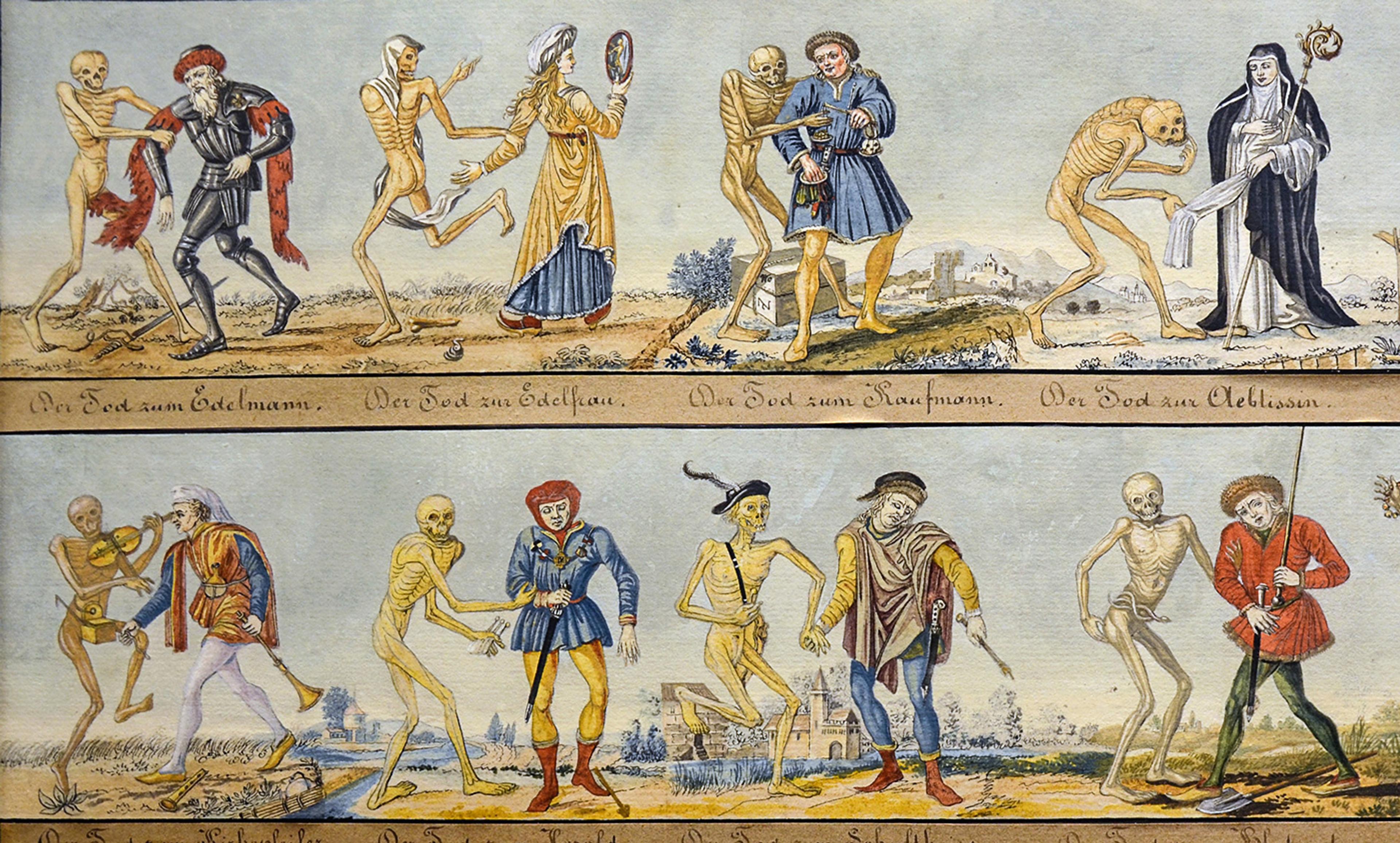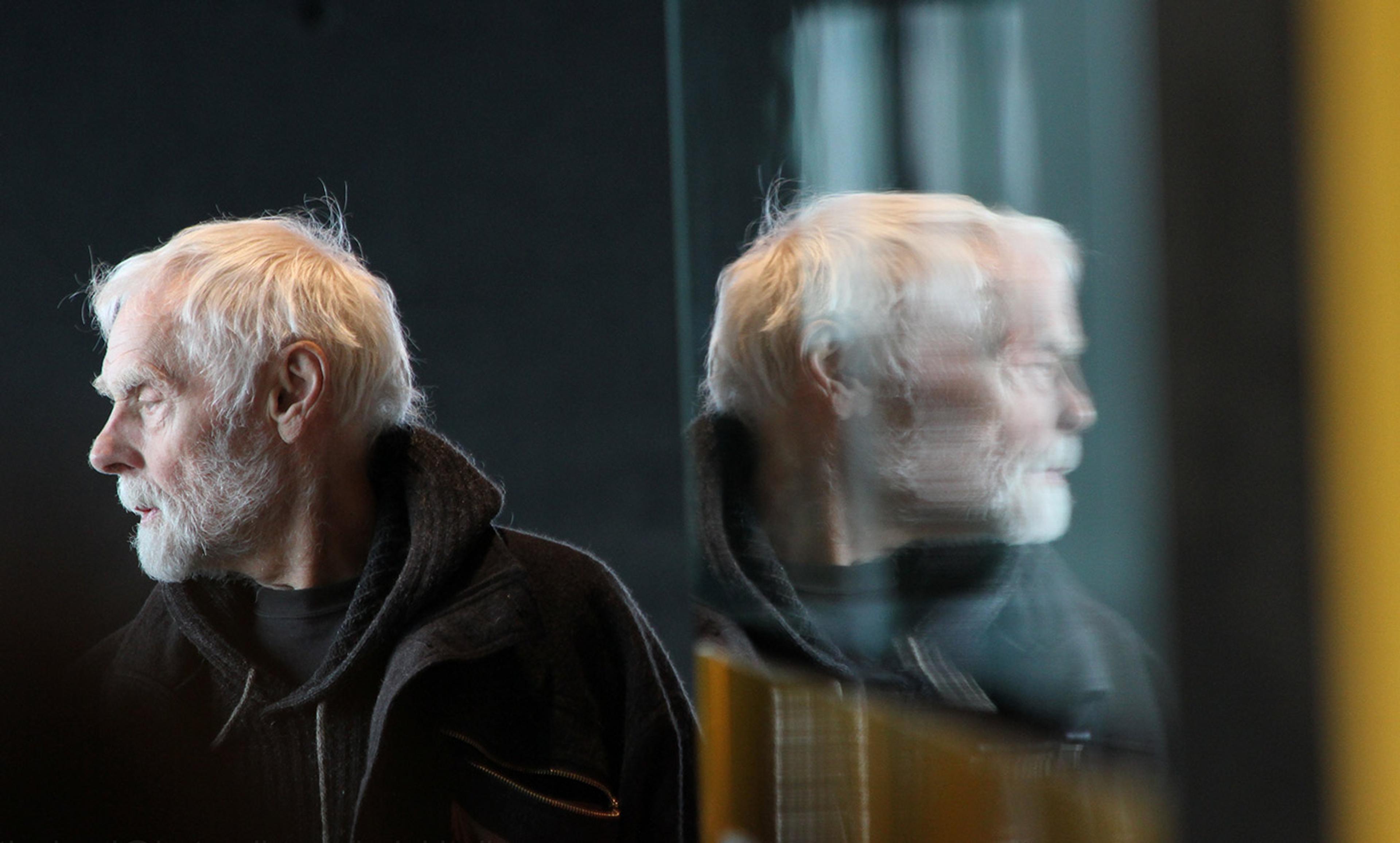The Grim Reaper against a Red Sunset. 1905. By Walter Appleton Clark. Courtesy Library of Congress
As long as there has been inequality among humans, death has been seen as the great leveller. Just like the rest of us, the rich and powerful have had to accept that youth is fleeting, that strength and health soon fail, and that all possessions must be relinquished within a few decades. It’s true that the better-off have, on average, lived longer than the poor (in 2017, the least deprived 10th of the UK population had a life expectancy seven to nine years longer than the most deprived one), but this is because the poor are more exposed to life-shortening influences, such as disease and bad diet, and receive poorer healthcare, rather than because the rich can extend their lives. There has been an absolute limit on human lifespan (no one has lived more than 52 years beyond the biblical threescore and ten), and those who have approached that limit have done so thanks to luck and genetics, not riches and status. This inescapable fact has profoundly shaped our society, culture and religion, and it has helped to foster a sense of shared humanity. We might despise or envy the privileged lives of the ultrarich, but we can all empathise with their fear of death and their sadness at the loss of loved ones.
Yet this might soon change dramatically. Ageing and death are not inevitable for all living things. For example, the hydra, a tiny freshwater polyp related to jellyfish, has an astonishing capacity for self-regeneration, which amounts to ‘biological immortality’. Scientists are now beginning to understand the mechanisms involved in ageing and regeneration (one factor seems to be the role of FOXO genes, which regulate various cellular processes), and vast sums are being invested in research into slowing or reversing ageing in humans. Some anti-ageing therapies are already in clinical trial, and though we should take the predictions of life-extension enthusiasts with a pinch of salt, it is likely that within a few decades we will have the technology to extend the human lifespan significantly. There will no longer be a fixed limit on human life.
What effects will this have on society? As Linda Marsa pointed out in her Aeon essay, life extension threatens to compound existing inequalities, enabling those who can afford the latest therapies to live increasingly longer lives, hoarding resources and increasing the pressure on everyone else. If we don’t provide equitable access to anti-ageing technology, Marsa suggests, a ‘longevity gap’ will develop, bringing with it deep social tensions. Life extension will be the great unleveller.
I think this fear is well founded, and I want to highlight another aspect of it. A longevity gap would involve a difference, not only in the quantity of life, but in its very nature. Life extension will transform the way we think of ourselves and our lives, creating a profound psychological gap between those who have it and those who don’t.
Here’s what I mean. We are, in a fundamental sense, transmitters, who preserve what we inherit and pass it on to the next generation. From a biological perspective, we are transmitters of genes – ‘gigantic lumbering robots’, in Richard Dawkins’s colourful phrase, built by natural selection to replicate our DNA. We are also transmitters of cultural artifacts – words, ideas, knowledge, tools, skills and so on – and any civilisation is the product of the gradual accumulation and refinement of such artifacts over many generations. We are not narrowly bound by these roles, however. Our genes and culture have enabled us to create societies in which we can pursue personal interests and projects of no direct reproductive or survival value. (As the psychologist Keith Stanovich puts it, we lumbering robots can rebel against the genes that created us.) We can become consumers, collectors and creators – indulging our sensual appetites, amassing possessions and knowledge, and expressing ourselves through art and physical activity.
But even so, we soon realise that our time is limited and that, if we want our projects, possessions and memory to endure, we must find people who will care for them when we are gone. Death encourages the most self-absorbed of us to become transmitters of one kind or another. Readers of George Eliot’s novel Middlemarch (1871) will remember her portrait of the self-centred scholar Edward Casaubon, who as death approaches becomes pathetically desperate for his young wife to continue his researches.
Life extension will change this. Those with extended lives will not have the same sense of transience that we have. They will be able to indulge themselves without worrying that they are wasting precious years, since they can expect plenty of time ahead in which to get around to less frivolous things. They probably won’t feel any urgency to share their projects with others, knowing that they are likely to possess them for many more years, and they might hoard knowledge and culture as well as material possessions. They could spend years cultivating their minds, bodies and aesthetic sensibilities, and become obsessed with perfecting themselves, not worrying that old age and death will soon undermine all this effort.
They might also feel themselves superior to those with natural lifespans. They could see their extended life as a symbol of high status, like a luxury home or a yacht. They might feel self-important in a deeper way, too. The philosopher Daniel Dennett has described the self as a kind of fiction – the imagined narrator of the unfolding story we tell about our attitudes, experiences, motives, projects and careers. These narratives are in fact constructed on the fly, by a collection of somewhat disunified brain systems, but we interpret them as reports of a unified persisting self. Those with extended lives will be able to spin much richer and more optimistic life stories, full of self-improvement and self-cultivation, and containing far fewer incidents of loss and grief (assuming their loved ones have extended lives too). As a result, they might see their selves – the implied narrators of these fascinating multivolume narratives – as more intrinsically valuable than the selves of people with unextended lives, who can tell only sad short stories.
Of course, even the longevity-rich will eventually have to face up to their own mortality, but for many decades they will be able to live as possessors and accumulators rather than as transmitters. By the individualistic standards of modern Western society, they will be hugely privileged over those with unextended lives – members of an alien species almost. It is not too hard to imagine violent scenarios in which the impoverished transients rise up against the sybaritic extended class. Fritz Lang’s movie Metropolis (1927) will look prophetic.
This doesn’t mean that life extension will inevitably be a bad thing. It’s what we do with our extended lives that matters. The danger lies in removing the check on self-indulgence that death provides, and in the deep new inequalities that its removal could create. Perhaps we will be able to mitigate the latter by making life-extension technology widely available, though that would itself bring risks of overpopulation and resource depletion. At any rate, if we want to maintain a stable society, we will need to find some way of counterbalancing the loss of the levelling influence that death exerts, and of maintaining the sense of humility and shared humanity that it fosters.
